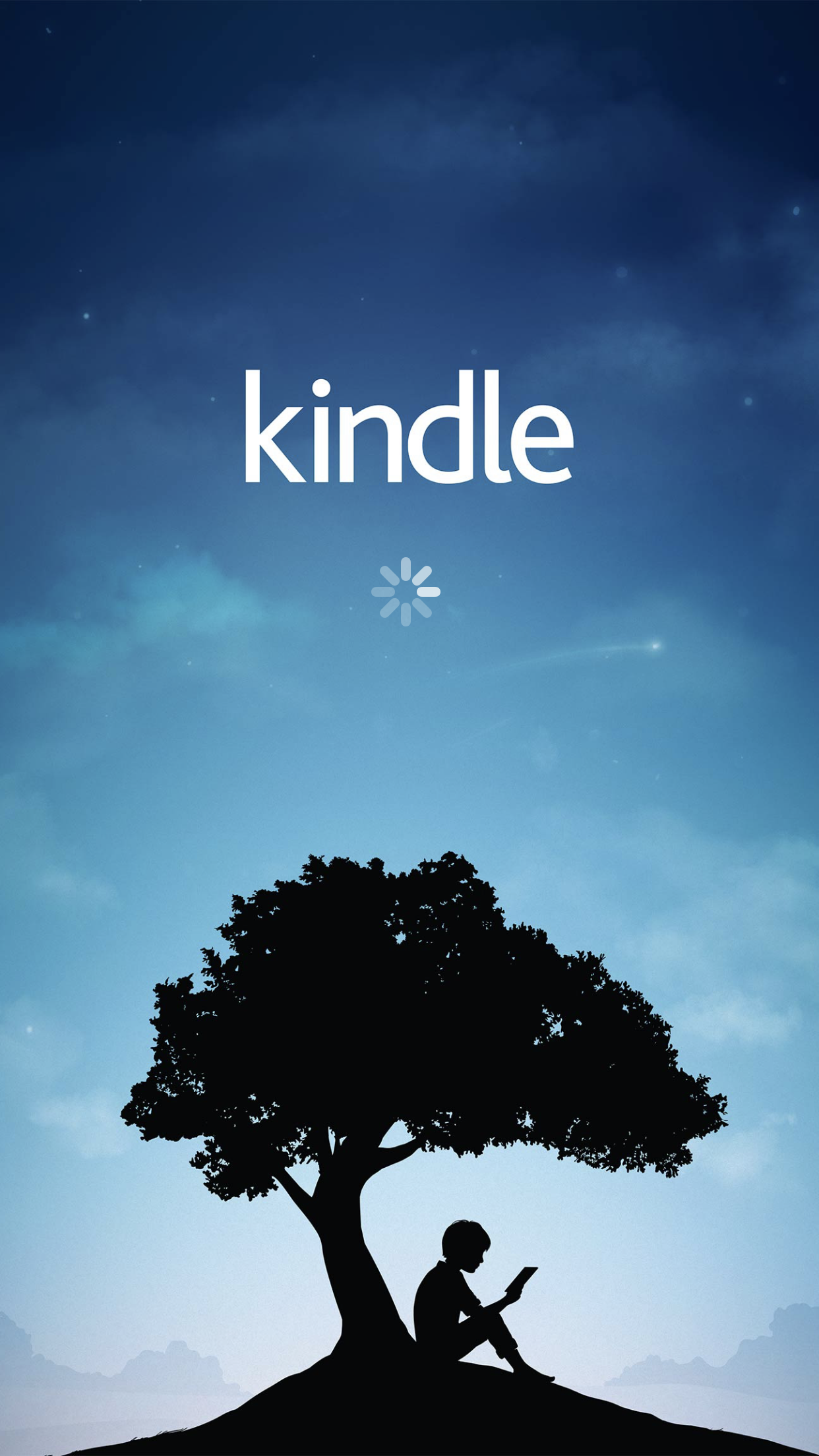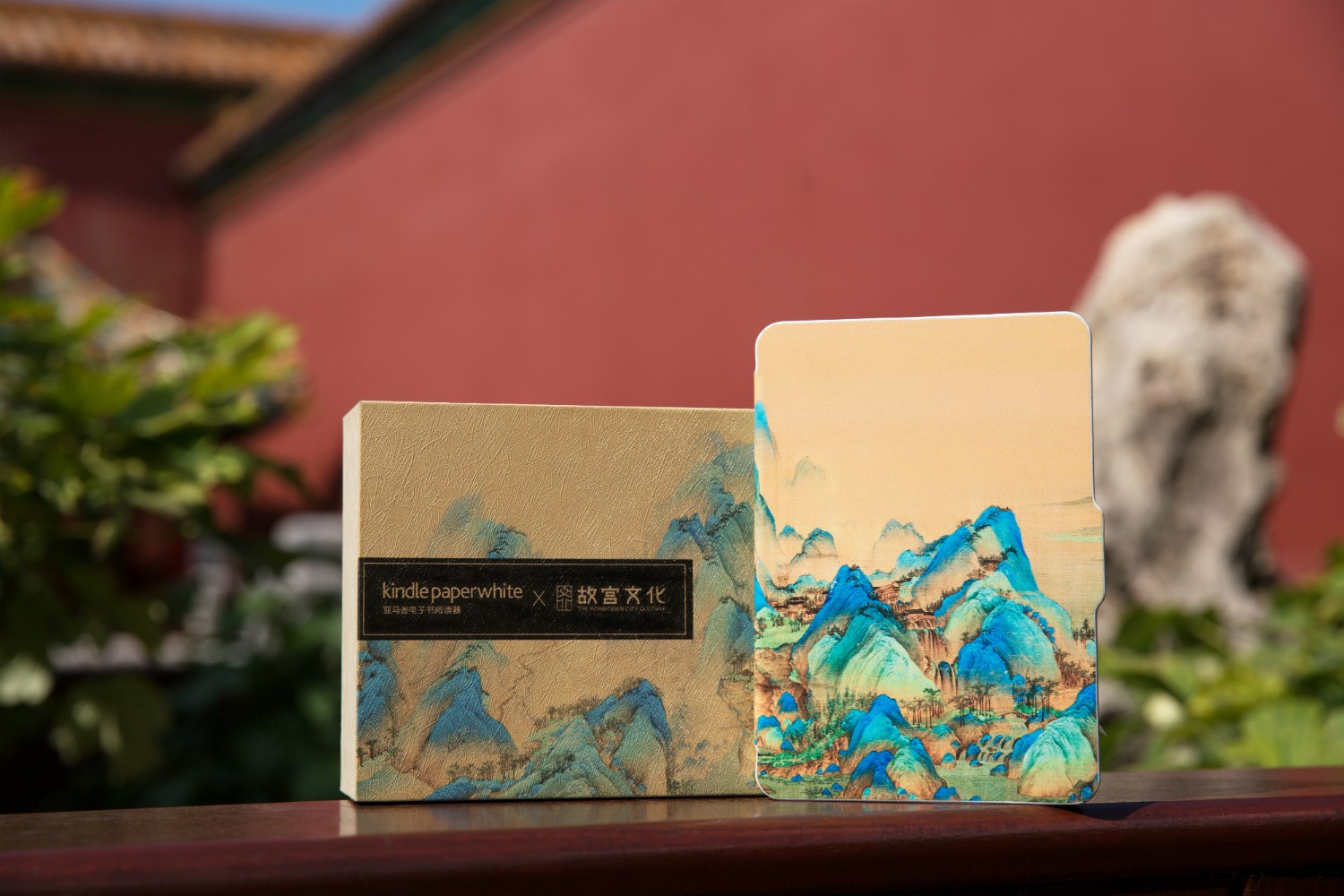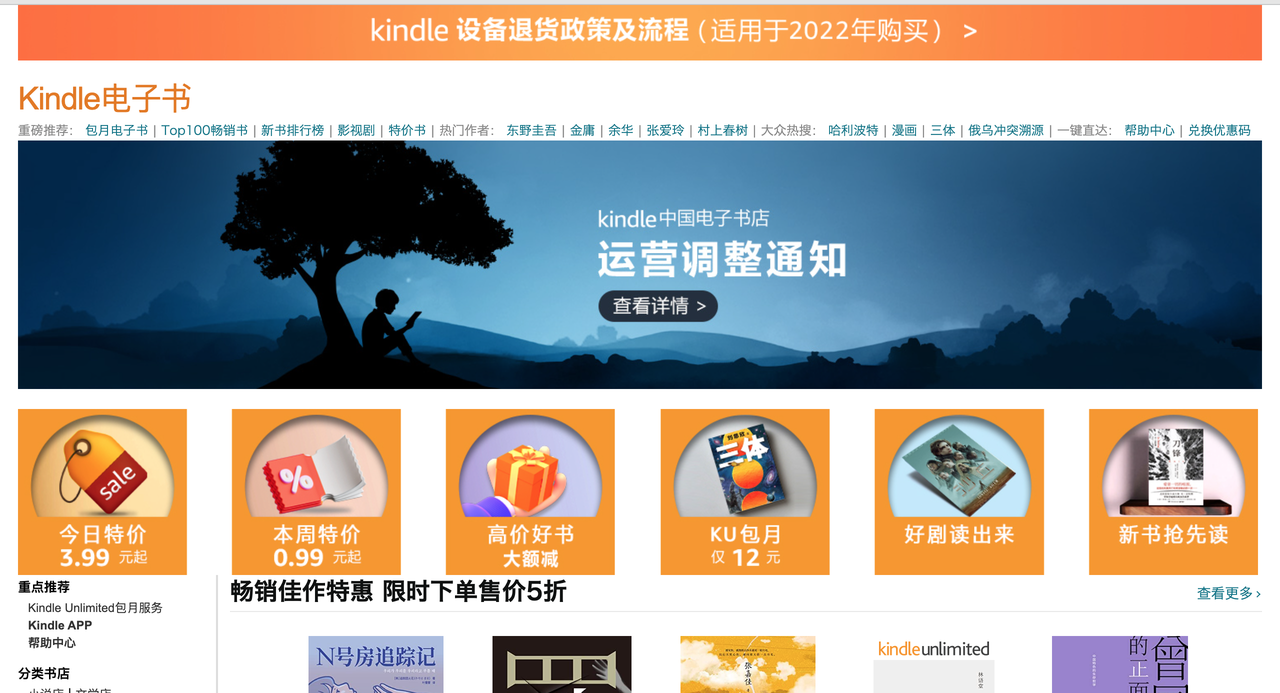Author | Lian Ran
Editor | Zheng Xuan
When we miss the Kindle, what are we missing?
Presumably not to miss an instant noodle cover. Nostalgia is the sight of looking at the past, which must be accompanied by the disappearance and disappearance of certain things. Just like Wang Xinling awakening sweet memories, Luo Dayou blows the wind of the old days. When we lament the Kindle’s departure, we also miss the pure reading time accompanied by the Kindle.
At noon on June 2, Amazon’s Kindle service account issued a notice of adjustment to the operation of Kindle’s e-bookstore in China, saying that Amazon will stop the operation of the Kindle e-bookstore in China one year later, on June 30, 2023, and users will no longer be able to continue. Buying a new book; after June 30, 2024, users will no longer be able to download the Kindle app from the App Store and continue to use the Send to Kindle feature…

Kindle China Electronic Bookstore Operation Adjustment Notice | Image source: Amazon official website
As soon as the news came out, social networks such as Moments and Weibo became a large-scale memory site for Kindle.
Earlier this year, there were rumors that the Kindle might be withdrawn from the Chinese market. At that time, the official response from Amazon China was “We are committed to serving Chinese consumers”, and refuted the rumor that some models were sold out in the Chinese market because ” lack of core” rather than withdrawing from the Chinese market, the public thought it was a false alarm for a while.
However, in less than half a year, Kindle has gone to the opposite end.
01. “Light the Flame”
Kindle, which means to light a flame, is named after Michael Patrick Cronan, a graphic designer in San Francisco invited by Lab 126, who thinks the name is a metaphor for the excitement of books and wisdom.

The Kindle was sent by Bezos’ enthusiasm, and it was also an important attempt by Amazon, which was mainly selling paper books at the time, to explore new businesses. Bezos sees the Kindle as an improvement on books, saying that because they can’t go beyond the nature of books, they can do things that books can’t, such as synchronizing dictionary lookups, changing fonts, and wirelessly transferring content, “We have to build something Something better than a physical book.”
On November 19, 2007, the first-generation Kindle was born, priced at $399. Within five and a half hours, the first batch of 25,000 Kindles were sold out, only to be re-launched in April of the following year. Before that, e-books had been around for 15 years, but had never been so popular. At that time, the Kindle was backed by the Amazon platform, which had 90,000 e-books, and each book was priced at only $9.9.
Low pricing has hit the traditional reading market, competition has shifted to digital, brick-and-mortar retailers have come under pressure, and Amazon has become more competitive.
For the first-generation Kindle, the media dubbed it “the iPod of reading.” In fact, it was the iPod that gave birth to the Kindle. In “Catch the Net”, Legg Mason investor Bill Miller once said that the iPod was disrupting the music business faster than Bezos imagined, and that the development of things caught Bezos a little off guard, “He has been Everyone knew that music was going to be digitized eventually, but he didn’t expect his CD business to be sidelined like that.”
Bezos therefore decided that Amazon must have its own e-book business “just like Apple controls the music business.” The Kindle fulfilled Bezos’ dream of a store for everything, propelled Amazon’s high-speed operation, and then competed with Apple on the same stage. Around 2011, “the Kindle has captured the majority of the book market, and the device has the potential to affect bookstores what iTunes did to record stores.”
02. If you lose China, the outcome is already doomed
The end of the Kindle in China is sad, but this result is not unexpected.
In June 2013, Kindle officially entered China. In 2016, China became the world’s largest market for Kindle. And by 2018, according to Amazon China, the cumulative domestic sales of Kindles have reached millions.

In August 2017, the joint gift box produced by Kindle and Forbidden City Culture uses “A Thousand Miles of Rivers and Mountains” as the protective cover pattern
This result is not bad, but for the huge Chinese online reading market with a population base of 1.4 billion, millions of Kindles are just a drop in the bucket.
The annual scale of China’s publishing book retail market is nearly 100 billion yuan, and e-commerce channels can account for nearly 80%. Amazon has been jealous of this market for many years, and for this reason, in 2004, it fully acquired Joyo.com.
Amazon is invincible overseas, but in China’s competition with rivals such as JD.com, Dangdang, and Tmall, Amazon has never been able to gain an advantage.
In 2013, Kindle entered China, bearing Amazon’s expectation of opening up the Chinese book market with the help of hardware. Even with the book category as a fulcrum, it will further leverage the Chinese e-commerce market share and replicate Amazon’s successful experience in the global market.
With a more convenient reading experience, the sales of Kindle in the first few years of China were not bad, especially in first- and second-tier cities, which also won Amazon a certain market share in the Chinese book market.
However, with the richer functions of smartphones, the experience of Kindle is no longer prominent, and there are still many problems such as system closure, low refresh rate and single format. A few years later, the rise of free reading apps made Kindle’s hopes of further expanding the results completely dashed.
Based on smartphones with a larger user base, free reading quickly took over the e-book market. WeChat Reading, which was released in 2015, according to official data, had a total of 210 million registered users at the end of 2019, with 5 million daily active users, including 2 million daily active users for published books.
As long as 19 yuan, you can read unlimited reading cards on WeChat, and even for most people, the unlimited reading cards and book coins obtained by free exchange of reading time are enough to meet the reading needs, while 19 yuan can only be used on Kindle Buy an ebook or two.
Just like the appearance of Kindle overseas dimensionality reduction hit bookstores, the rise of free reading, dimensionality reduction hit the e-book ecosystem built by Kindle.
To make matters worse, in 2019, Amazon’s e-commerce business announced its withdrawal from the Chinese market, leaving only the Kindle e-book business and cross-border e-commerce business in China.
Without the support of Amazon’s e-commerce, the Kindle’s situation is even more difficult. In October last year, Kindle’s Tmall flagship store was closed. At the beginning of this year, except for a low-end youth version, JD.com’s self-operated flagship stores were all out of stock. Retreat, and finally came the day when the dust settled.

The end result is decent. In order to protect the rights and interests of users, while stopping supply to dealers from now on, Amazon has launched a “non-quality problem return service”. Any purchases made from authorized distribution channels in China after January 1, 2022, and they are in normal use. Condition Kindle e-readers can be returned with an invoice etc. until October 31, 2022.
And when several functions mentioned in the notice are all stopped, I am afraid that the Kindle will really become a brick. At that time, I am afraid that it will be used to cover the instant noodle bucket, and it will be too much dust.
This article is the original article of Geek Park, please contact Geek Jun WeChat geekparkGO for reprint
This article is reprinted from: https://www.geekpark.net/news/303253
This site is for inclusion only, and the copyright belongs to the original author.